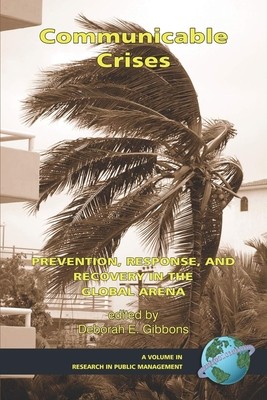
- We will send in 10–14 business days.
- Publisher: Information Age Publishing
- Year: 2007
- Pages: 396
- ISBN-10: 159311608X
- ISBN-13: 9781593116088
- Format: 15.6 x 23.4 x 2.2 cm, hardcover
- Language: English
- SAVE -10% with code: EXTRA
Communicable Crises (e-book) (used book) | bookbook.eu
Reviews
Description
This volume makes a significant contribution to the crisis management literature. It also adds to our inchoate understanding of network governance: temporary teams and task forces, communities of practice, alliances, and virtual organizations. It hints that the distinction between networks and organizations may be somewhat spurious, a matter of degree rather than kind. Indeed, it seems that this distinction may derive more from mental models in which we consistently reify organizations than anything else. Finally, the volume emphasizes the functional importance of leadership in network governance and puzzles over its provision in the absence of hierarchy. As such, it adds to the contributions made by Marc Granovetter (1973), John Seeley Brown and Paul Duguid (1991), Bart Nooteboom (2000), Paul J. DiMaggio (2001), John Arquilla and David Ronfeldt (2001), Laurence O'Toole and Ken Meier (2004), and others, as well as Nancy Roberts' seminal work on wicked problems and hastily formed teams. The result is a product the editor and the contributors can be proud of. Overall, it is one that will edify, surprise, and delight its readers.
EXTRA 10 % discount with code: EXTRA
The promotion ends in 18d.06:23:22
The discount code is valid when purchasing from 10 €. Discounts do not stack.
- Publisher: Information Age Publishing
- Year: 2007
- Pages: 396
- ISBN-10: 159311608X
- ISBN-13: 9781593116088
- Format: 15.6 x 23.4 x 2.2 cm, hardcover
- Language: English English
This volume makes a significant contribution to the crisis management literature. It also adds to our inchoate understanding of network governance: temporary teams and task forces, communities of practice, alliances, and virtual organizations. It hints that the distinction between networks and organizations may be somewhat spurious, a matter of degree rather than kind. Indeed, it seems that this distinction may derive more from mental models in which we consistently reify organizations than anything else. Finally, the volume emphasizes the functional importance of leadership in network governance and puzzles over its provision in the absence of hierarchy. As such, it adds to the contributions made by Marc Granovetter (1973), John Seeley Brown and Paul Duguid (1991), Bart Nooteboom (2000), Paul J. DiMaggio (2001), John Arquilla and David Ronfeldt (2001), Laurence O'Toole and Ken Meier (2004), and others, as well as Nancy Roberts' seminal work on wicked problems and hastily formed teams. The result is a product the editor and the contributors can be proud of. Overall, it is one that will edify, surprise, and delight its readers.


Reviews